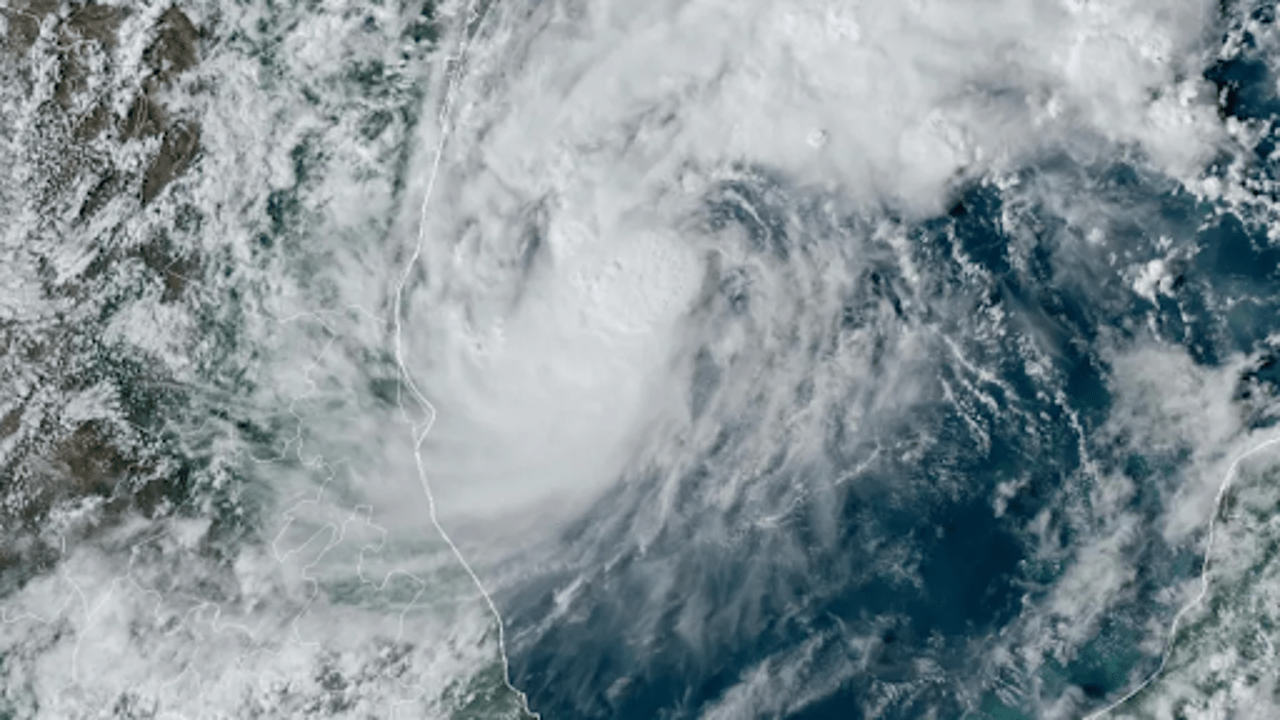
A satellite image from the GOES-16, captured at 4:50 p.m. EDT and released by the National Oceanic and Atmospheric Administration (NOAA), displays Tropical Storm Milton located off the coast of Mexico in the Gulf of Mexico on Saturday, October 5, 2024. (AP Photo)
Hurricane Milton intensified rapidly on Sunday and is projected to hit the Tampa Bay area by Wednesday, potentially causing significant damage. With Florida still recovering from the devastation left by Hurricane Helene, the threat of Milton has triggered evacuation orders along the Gulf Coast. While forecast models vary, most predict Milton will make landfall in central Florida before continuing across the state and into the Atlantic Ocean.
Florida Governor Ron DeSantis expressed concern, stating that Florida will face serious impacts from the hurricane. "There’s no scenario where we avoid major damage at this point," DeSantis warned. As of Sunday afternoon, Milton was around 815 miles southwest of Tampa with winds reaching 80 mph. DeSantis urged residents along Florida’s west coast to take the next couple of days to finalize preparations and prepare to evacuate if necessary. "If you are on the west coast of Florida, especially barrier islands, assume you will be asked to leave," he advised.
Hurricane Milton’s arrival marks the first time since September that the Atlantic has seen three simultaneous hurricanes. The Tampa Bay-St. Petersburg area is still struggling with damage from Helene, which caused widespread destruction and flooding. Helene’s storm surge devastated coastal areas, claiming the lives of 12 people and severely impacting communities, particularly the narrow barrier islands stretching from St. Petersburg to Clearwater.
With Milton’s landfall approaching, DeSantis expanded the state of emergency to 51 counties and urged residents to stockpile a week’s worth of supplies, including food and water, in case of power outages. He also mentioned that the state is coordinating with federal agencies to ensure resources are ready. The Federal Emergency Management Agency (FEMA) is working closely with the governor and President Joe Biden to prepare for the storm. FEMA has staged lifesaving supplies and prepared for a large-scale response.
Kevin Guthrie, the executive director of the Florida Division of Emergency Management, warned that the state could see its largest evacuation effort since Hurricane Irma in 2017. He urged residents in evacuation zones to leave early to avoid congestion. Florida officials have ensured emergency fuel supplies and established electric vehicle (EV) charging stations along key evacuation routes. Those living in homes built after 2004, when Florida’s building codes were strengthened, may be safe if they are not in evacuation zones or reliant on power.
As the storm approaches, Pinellas County in St. Petersburg has preemptively closed schools, and Tampa has opened city garages to residents seeking to protect their vehicles from potential flooding. DeSantis also directed the 4,000 National Guard troops who had been dispatched to assist in North Carolina after Helene to return to Florida to help with debris removal and emergency preparations.
Despite ongoing recovery efforts from Helene, FEMA Administrator Deanne Criswell emphasized that FEMA is ready to assist with Hurricane Milton. She condemned false claims about FEMA’s hurricane response, saying that misinformation has caused fear and confusion in communities. "We are focused on helping people, not politics," she said.
Federal disaster aid has surpassed $137 million in response to Helene, with over 6,100 National Guardsmen and 7,000 federal workers deployed. Thousands of meals, water, and generators have been distributed, and more than 27,000 households have received financial assistance.















